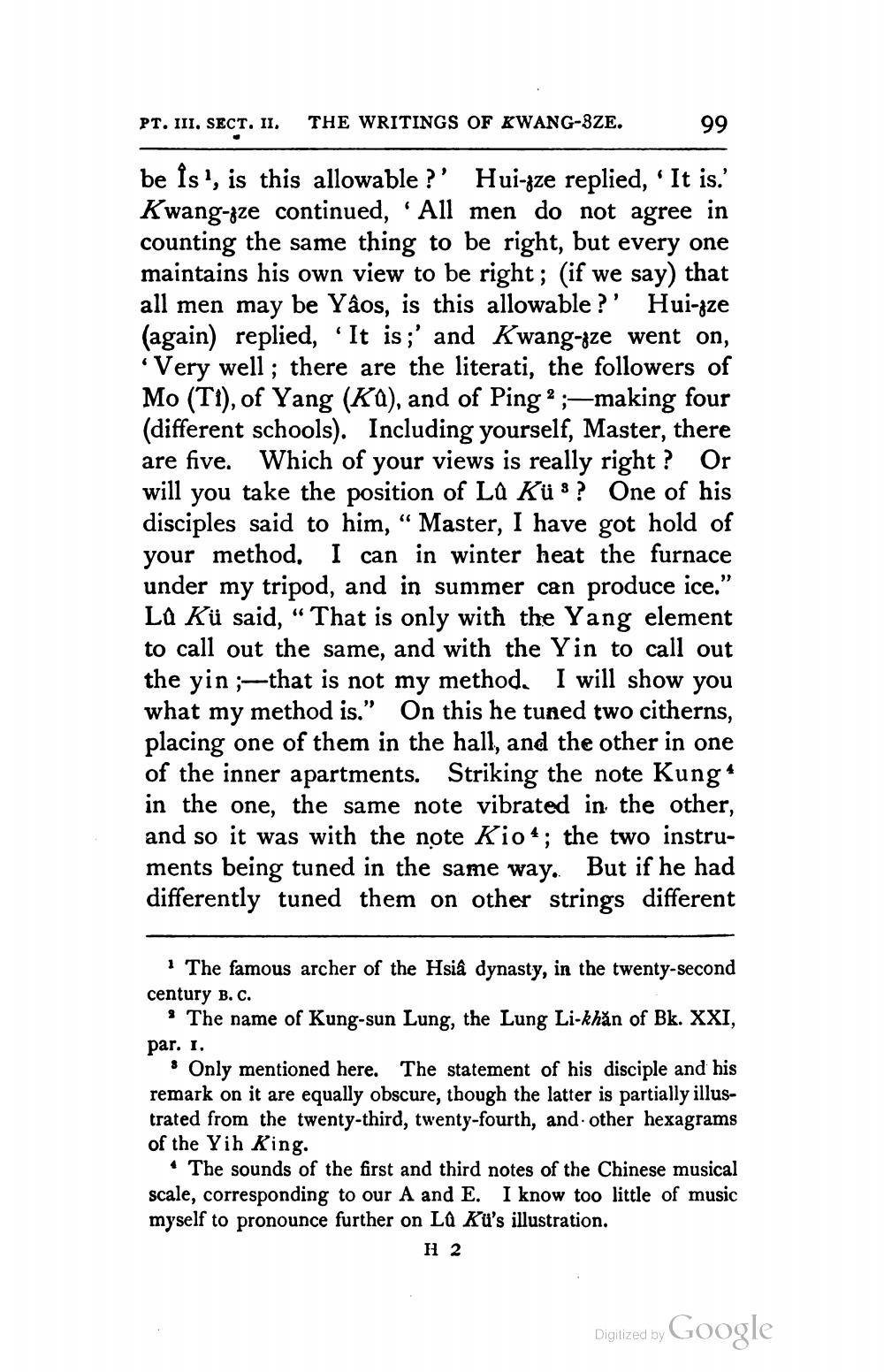________________
PT. III. SECT. II. THE WRITINGS OF KWANG-8ZE.
99
be Îs', is this allowable?' Hui-ze replied, 'It is.' Kwang-ze continued, 'All men do not agree in counting the same thing to be right, but every one maintains his own view to be right; (if we say) that all men may be Yâos, is this allowable?' Hui-ze (again) replied, 'It is;' and Kwang-ze went on, 'Very well; there are the literati, the followers of Mo (Ti), of Yang (Ku), and of Ping 2;-making four (different schools). Including yourself, Master, there are five. Which of your views is really right? Or will you take the position of Lû Küs? One of his disciples said to him, "Master, I have got hold of your method. I can in winter heat the furnace under my tripod, and in summer can produce ice." Lû Kü said, "That is only with the Yang element to call out the same, and with the Yin to call out the yin; that is not my method. I will show you what my method is." On this he tuned two citherns, placing one of them in the hall, and the other in one of the inner apartments. Striking the note Kung' in the one, the same note vibrated in the other, and so it was with the note Kio; the two instruments being tuned in the same way. But if he had differently tuned them on other strings different
The famous archer of the Hsiâ dynasty, in the twenty-second century B. C.
* The name of Kung-sun Lung, the Lung Li-khăn of Bk. XXI, par. 1.
* Only mentioned here. The statement of his disciple and his remark on it are equally obscure, though the latter is partially illustrated from the twenty-third, twenty-fourth, and other hexagrams of the Yih King.
The sounds of the first and third notes of the Chinese musical scale, corresponding to our A and E. I know too little of music myself to pronounce further on Lû Kü's illustration.
H 2
Digitized by Google




